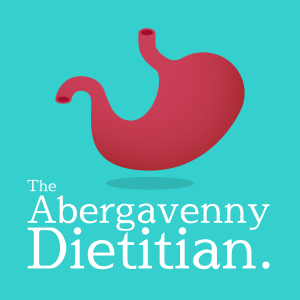Dietitian, nutritionist, nutritional therapist, diet expert – It can sometimes be a confusing job to choose the right person to seek assistance and guidance from when it comes to nutrition.
This explains why so many people are confused about the difference between my job as a dietitian and that of a nutritionist. To set the record straight, I’ve put together this list of the main differences between the two professions.
1. Dietitians are government-regulated
Dietitians are the only government-regulated food and nutrition-related health experts. We are regulated by an ethical code to guarantee we always operate to the highest standards. Registered dietitians (RDs) evaluate, diagnose, and treat nutritional and dietary issues at both an individual and wider level of public health.
Nutritionists, on the other hand, do not need to be registered to work in the UK. However, many nutritionists belong to the voluntary self-regulated professional register (UKVRN) and use the title ‘Registered Nutritionist’, but this is not a body which is regulated by the government.
2. Not everyone can call themselves a dietitian
Unlike other titles (such as ‘nutritionist’ or ‘nutritional therapist’, which anyone can use) the title “dietitian” is protected by law. Only those registered with the statutory regulator, the Health & Care Professions Council (HCPC) can use the title of Dietitian/Registered Dietitian (RD).
The function of the HCPC is to protect the public from harm. It is an independent health regulator which operates throughout the UK. It maintains a register of health professionals who meet its stringent requirements and acts if registered health practitioners drop below these standards.
In order to remain registered with the HCPC, we dietitians are required to undertake Continuing Professional Development (CPD) which keeps us up to date on the latest research.
The title of ‘nutritionist’ however isn’t protected by law, meaning that anyone can advertise their services as a nutritionist. That’s why it is safer to go with a dietitian, who is also qualified to give advice on general nutrition matters.
3. Dietitians work in hospitals
Dietitians can practice in the NHS and private hospitals. We work with both healthy and sick individuals, while nutritionists only work with non-sick individuals. This is why dietitians are the only ones who can also work with people with special dietary needs related to their health conditions, such as inflammatory bowel or liver disease. We train for this by undergoing three clinical placements as part of our training.
Although we dietitians generally operate in a clinical environment with the NHS, you can also find us working in education, publishing, sport and government. Our knowledge can be implemented on a one-to-one basis to treat individual health conditions, or on a wider scale such as informing the general public about food and health policies or educating other health experts or community organisations.
Nutritionists however, can only work in non-clinical settings and are only able to provide general information about food and healthy eating. You would not expect a ‘nutritionist’ to have had any training in clinical conditions.
4. Dietitians use evidence-based research
We are required to use the most up-to-date public health and science on nutrition, health and illnesses that we translate into practical advice to allow individuals to make relevant lifestyle and food decisions.
We are also forbidden to give advice based on our own personal opinions and beliefs, or anything we could financially benefit from.
A note on ‘diet experts’ and ‘nutritional therapists’
Nutritional therapists make diet and lifestyle suggestions to relieve ailments, but this advice is often based on complementary medicine and is not often recognised in conventional medicine as valid treatment.
There are also other people who call themselves as’ diet experts’ or’ nutrition experts.’ You should know that this is self-regulated industry in which anyone can operate, which means that there is no true protection for customers.
The Abergavanny Dietitian
I hope this has been a useful guide for those who were unsure of the differences between these professions. I would recommend you ask the background and qualifications of anyone you’re thinking of taking nutrition advice from. You can then ask your doctor or other health professional to determine whether they are appropriately qualified and regulated.
You can check the HCPC online register to see if the dietitican you are considering is registered. If you’re wondering if a dietitian is right for your needs, why not call me for a free five-minute consultation?
For more information on the conditions I help manage, see my posts on Irritable Bowel Syndrome and gluten allergies.
Disclaimer: All content found on this website, including images, videos, infographics and text were created solely for informational purposes. This content should never be used for the purpose of diagnosis or treatment of any medical conditions. Content shared on my website is not meant to be used as a substitute for advice from a regulated medical professional. Reliance on the information provided on my website as a basis for patient treatment is solely at your own risk. I urge all my customers to always consult a doctor or a regulated medical professional before implementing any of the advice found on these blogs.


